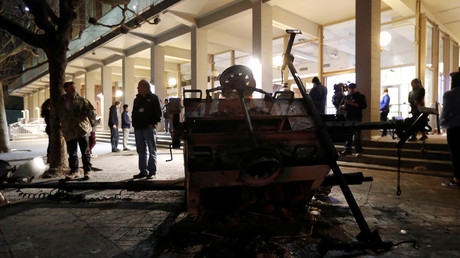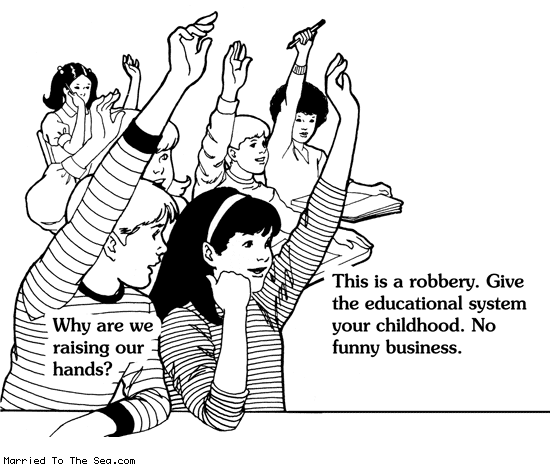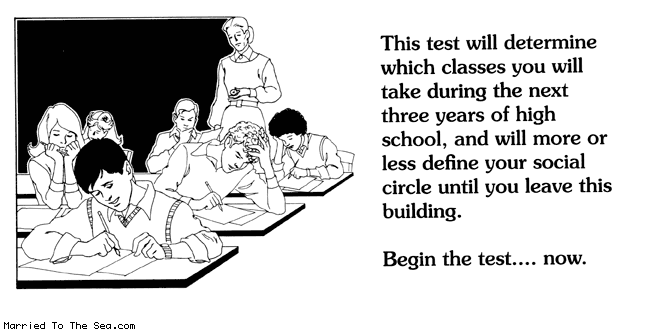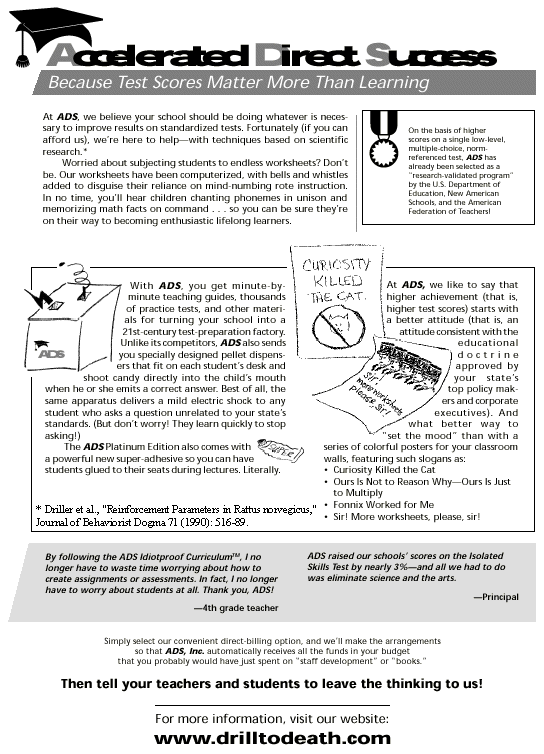"The very best thing you can be in life is a teacher, provided that you are crazy in love with what you teach, and that your classes consist of eighteen students or fewer. Classes of eighteen students or fewer are a family, and feel and act like one." Kurt Vonnegut
Wednesday, October 31, 2018
Monday, October 29, 2018
Commentary:
When college students are afraid to speak up
Stephen CarterBloomberg View
Survey shows about half of college students are afraid to speak up when their peers disagree with them
Maybe I'm a mite overconcerned about the findings of the just-released survey by McLaughlin & Associates about the attitudes of college students toward free speech. The survey, conducted during September on behalf of Yale University's William F. Buckley Jr. Program, found some disturbing responses on basic questions about just how free students think their own campus speech is.
Before I begin, a word of caution. Young people nowadays are notoriously difficult to sample. The survey was conducted online, and the data were stratified "to reflect the actual demographic composition of undergraduate students in the United States," as reported by the federal government. But this adjustment cannot account fully for selection bias. Nevertheless, the report brings not entirely happy news for those who care about the quality of campus debate.
I'll start with the good stuff. Most students surveyed (73 percent) don't want to scrap the First Amendment. True, a depressing 30 percent of self-described liberals think it's time to rewrite the amendment's guarantee of free speech. But I suspect the Constitution will survive their displeasure.
Second, only 10 percent think that their colleges should go further in regulating speech, although there the question seems to me fairly loaded, I assume unintentionally, against regulation. (And I say this as one who thinks regulation of speech on campus, however well-intentioned, is a terrible thing, bound to end in disaster.) In addition, only 16 percent of students say debate should be more restricted at the college level than in the society at large. Some 38 percent say debate should be less limited, and 43 percent say there should be no difference.
The third happy result is that overwhelming majorities reported that their own professors tolerate diverse opinions in the classroom. In fact, the figure was over 80 percent in every demographic group except part-time students, and even there the figure was 72 percent.
From there, however, things get worse.
The survey asked whether students felt intimidated about sharing their own views because they differed from either the views of their professors or the views of their classmates. On both questions, respondents split almost evenly. That roughly half of students feel that professors sometimes don't welcome their dissent is unwelcome news. But we learn more if we probe the data more deeply. Republicans were slightly more likely than Democrats to have experienced classroom intimidation, and men were slightly more likely than women. The outlier group, by a significant margin, is Hispanic students, of whom some 56 percent report feeling intimidated, compared with 49 percent of black students and 45 percent of white students.
Recent research has indicated that peers play a more important role than professors in pressuring college students to change their views. So when the survey moves from intimidation in the classroom to intimidation by peers, we should see a shift. And we do. For example, there is suddenly a significant difference between reports of intimidation by students aged 22 and under (53 percent) as against older students (48 percent) — a distinction that might have more to do with maturity than politics. Interestingly, we also learn that although 54 percent of students at four-year colleges report peer intimidation, the figure at two-year colleges is only 42 percent.
More intriguing still is that students who self-identify as political independents are significantly less likely than those who self-identify as Republicans or Democrats to report intimidation by either professors or peers. Put otherwise, independents seem willing to speak up and take the flak. This phenomenon seems to me to have a common sense explanation. A highly partisan student is more likely to spend large amounts of time in the company of other highly partisan students — and partisans, especially nowadays, don't like to be disagreed with. Indeed, suppressing one's own urge to dissent is part of how one signals membership in a group. In other words, what might be causing Democrats and Republicans to feel intimidated is their tendency to hang around with fellow Democrats and Republicans.
Still, the intimidation findings are depressing. Essentially half of college students say they are afraid to speak up when their peers disagree with them. This may be a sign that young people are in some fundamental sense weaker than earlier generations, but we can't tell, because we have no reliable survey data from, say, 40 years ago. Or perhaps it's a sign that critics are correct, and things have changed fundamentally on campus.
The survey's most counterintuitive finding might be that although a plurality of students (37 percent) thinks their school is more tolerant of liberal than conservative beliefs, self-described liberals (at 51 percent) are far more likely than self-described conservatives (at 35 percent) to believe this. Could it really be, despite all the hype about political correctness, that conservatives are less intimidated on campus than liberals?
Maybe this result isn't so surprising. Let's look at two plausible explanations.
First, it may be that students at four-year colleges are more likely than students at two-year colleges to be liberal. Given that the study finds students at two-year colleges report less intimidation overall, the data might actually be picking up the difference in who's enrolled where.
Second, liberal and conservative students are unlikely to be equally represented in all majors or, within a major, in all courses. It's possible, then, that more liberal students self-select into exactly the sort of courses where dissent is less tolerated.
I'm not embracing either explanation. I'm just pointing them out as plausible candidates.
Overall, there's good news and bad. It's refreshing to learn how few students support restrictions on campus speech. At the same time, it's depressing to learn how many don't feel free to speak up when they disagree with faculty or peers. Those of us who dwell in the academy should celebrate the first and do what we can to remedy the second.
Bloomberg View
Stephen Carter is a Bloomberg View columnist and a law professor at Yale.
53% of US undergrads afraid to disagree with outspoken professors on political, social issues — poll
53% of US undergrads afraid to disagree with outspoken professors on political, social issues — poll
Students are pictured on the campus of Vanderbilt University in Nashville, Tennessee. © Reuters / Harrison McClary
- 87
US college campuses have traditionally been known as havens of free speech among students, but now professors are increasingly sharing their opinions — and many undergraduates are afraid to disagree with them, a new survey found.
Some 800 full-time undergraduate students at private and public four-year universities took part in the survey earlier this month that was conducted by McLaughlin & Associates on behalf of Yale University's William F. Buckley, Jr. Program.
More than half of those students (52 percent) said that their professors or course instructors express their own unrelated social or political beliefs "often" in class, according to the poll results that are due to be released next week, but were seen in advance by The Wall Street Journal found.
But unlike their professors, the young people find it more difficult to speak up. The survey found that 53 percent of the students polled often feel "intimidated" in sharing their ideas, opinions, or beliefs if they differ from their professor's. That's an increase of four percentage points from three years ago.
The students were also asked about hate speech on campuses, with 33 percent believing that physical violence can be justified to stop a person from making hateful or racially charged comments. That number represents a slight increase from last year, when 30 percent of students said the same.
Meanwhile, when asked about the First Amendment, which protects free speech in America, 17 percent of students said they would stand behind a rewrite of it, as they consider it "outdated."
While the poll doesn't specify which direction each professor's personal opinions lean, a survey conducted earlier this month by a politics professor at Sarah Lawrence College provides insight on the political affiliations of student affairs administrators in the US. A whopping 71 percent identified as liberal or very liberal, while only six percent identified as conservative to some degree.
"To students who are in their first semester at school, I urge you not to accept unthinkingly what your campus administrators are telling you. Their ideological imbalance, coupled with their agenda-setting power, threatens the free and open exchange of ideas, which is precisely what we need to protect in higher education in these politically polarized times," the study's author, Samuel J. Abrams, warned in a column in The New York Times.
Freedom of speech on America's college campuses has, according to many conservatives, long been under threat. The University of California at Berkeley has constantly found itself at the heart of the controversy.
The Berkeley campus, historically and currently known for its liberal students and staff, was at the center of clashes and arrests last year as protesters and counter-protesters came out in full force to make their voices heard over a talk by the former editor of conservative online news site Breitbart.
Berkeley also came under fire for canceling a planned speech by conservative pundit Ann Coulter last year, with some students even filing a lawsuit over the matter.
The behavior of the university, which is ironically the home of the Free Speech Movement, even evoked a response from US President Donald Trump, who threatened to pull its federal funding if it didn't change its tune.
If U.C. Berkeley does not allow free speech and practices violence on innocent people with a different point of view - NO FEDERAL FUNDS?
But Berkeley isn't the only campus to make headlines for its treatment of conservative speakers. Texas Southern University in Houston canceled a commencement address by Republican Senator John Cornyn last year, after a petition was filed against his appearance by students.
Friday, October 26, 2018
Tuesday, October 16, 2018
Tuesday, October 2, 2018
Family Income Affects Kids' Success More Than Public Vs. Private School, Study Finds
Family Income Affects Kids' Success More Than Public Vs. Private School, Study Finds
Does Attendance in Private Schools Predict Student Outcomes at Age 15? Evidence From a Longitudinal Study
Abstract
By tracking longitudinally a sample of American children (n = 1,097), this study examined the extent to which enrollment in private schools between kindergarten and ninth grade was related to students’ academic, social, psychological, and attainment outcomes at age 15. Results from this investigation revealed that in unadjusted models, children with a history of enrollment in private schools performed better on nearly all outcomes assessed in adolescence. However, by simply controlling for the sociodemographic characteristics that selected children and families into these schools, all of the advantages of private school education were eliminated. There was also no evidence to suggest that low-income children or children enrolled in urban schools benefited more from private school enrollment.
Does Attendance in Private Schools Predict Student Outcomes at Age 15? Evidence From a Longitudinal Study
By tracking longitudinally a sample of American children (n = 1,097), this study examined the extent to which enrollment in private schools between kindergarten and ninth grade was related to students’ academic, social, psychological, and attainment outcomes at age 15. Results from this investigation revealed that in unadjusted models, children with a history of enrollment in private schools performed better on nearly all outcomes assessed in adolescence. However, by simply controlling for the sociodemographic characteristics that selected children and families into these schools, all of the advantages of private school education were eliminated. There was also no evidence to suggest that low-income children or children enrolled in urban schools benefited more from private school enrollment.
Monday, October 1, 2018
Subscribe to:
Comments (Atom)
Spring 2020 MWF Schedule
Search This Blog
“Arts of the Possible,” Adrienne Rich (2001)
Universal public education has two possible—and contradictory—missions. One is the development of a literate, articulate, and well-informed citizenry so that the democratic process can continue to evolve and the promise of radical equality can be brought closer to realization. The other is the perpetuation of a class system dividing an elite, nominally “gifted” few, tracked from an early age, from a very large underclass essentially to be written off as alienated from language and science, from poetry and politics, from history and hope—toward low-wage temporary jobs. The second is the direction our society has taken. The results are devastating in terms of the betrayal of a generation of youth. The loss to the whole of society is incalculable. (p. 162)
Paulo Freire, Teachers as Cultural Workers
“One of the violences perpetuated by illiteracy is the suffocation of the consciousness and the expressiveness of men and women who are forbidden from reading and writing, thus limiting their capacity to write about their reading of the world so they can rethink about their original reading of it.”
Education
"What does education often do? It makes a straight-cut ditch of a free, meandering brook."
Henry David Thoreau
Henry David Thoreau
Blog Archive
- ► 2012 (217)





